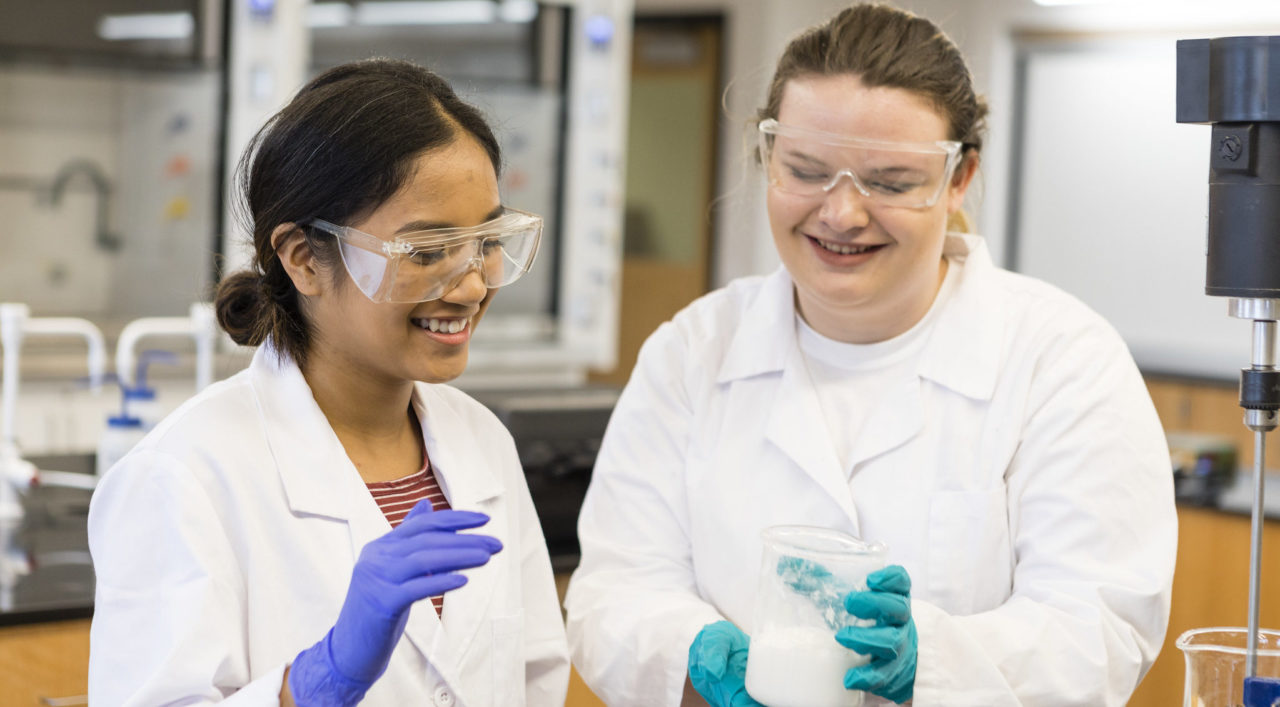Chemistry MS

Admissions Planning Message
This program is not open for new enrollment. For more information see this announcement. You may also wish to browse through the program finder.
The Master of Science in chemistry provides training for those who wish to advance their careers in research, industry, government service or teaching. In addition to advancing students toward a doctoral program, the program also provides courses of interest to industrial chemists who already may hold advanced degrees. In addition to full-time faculty, the department of chemistry draws part-time faculty from local industries, allowing a broader range of offerings.
Admission requirements
- Graduation from an accredited college or university.
- Satisfactory completion of a minimum of 24 credits in undergraduate chemistry with laboratory work, including physical and organic chemistry, a working knowledge of calculus and one year of physics with laboratory.
- Submission of an official score report for the Graduate Record Examination (GRE) General Test taken within the last five years. (The GRE requirement is waived for applicants who have completed a master’s degree.)
- Three letters of recommendation.
Applicants who have not completed all requirements for admission to the degree program may be permitted to enroll in classes for credit on a nonmatriculated or nondegree basis.
Degree Plan
Satisfactory completion of a minimum of 30 credits in courses prescribed or approved for the degree of Master of Science in chemistry. Compliance with the minimum course requirements listed below.
Chemistry Requirements
- 18 credits of 6000 level or higher CHEM courses
Graduate Electives
- 12 credits selected from any 5000 level or higher in CHEM, COSC, BIOL, MATH, PHAR, or CSCF as approved by an advisor
Thesis Option
- Under the CHEM requirements above, complete at least 9 credits of
- CHEM 6801
- CHEM 6802
- CHEM 6803